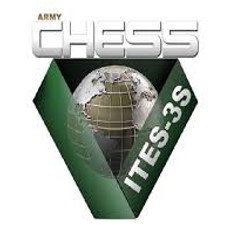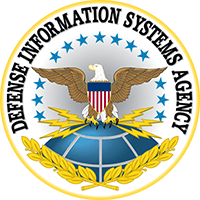Timing is everything and now seems to be the time for Service Management and Digital Transformations. We can't throw a stick in any direction without hitting upon 'some company' talking of the importance of systems thinking, or, their digital transformation but I wonder how CxOs have a framework to accomplish their vision.
" ...vision without systems thinking ends up painting lovely pictures of the future with no deep understanding of the forces that must be mastered to move from here to there." Peter M. Senge
Yet who of us can fully claim to understand systems thinking? Probably less of us than need to and, with all the CxO's pointing to the need for transformational change, it seems that this is a cultural and organizational-level imperative that Service Management frameworks are ready to assist with.
Who has the best framework for Service Management transformation?
Although I don't have any connection to AXELOS - I do follow the service and product development worlds closely, and, I'm quite impressed with their latest evolution of the ITIL framework (ITIL V4). From a timing perspective, the expanded scope and improved guidance on the full scope of Service Management or business transformation is spot-on. AXELOS doesn't have the name recognition of a Google or Microsoft, but they own and are responsible for the continued development of a number of best practice frameworks and methodologies important to systems thinking, service management, project and portfolio management, and cyber resilience.
As a practitioner of those frameworks, I think they are important for CxO's to become familiar with if they hope to see their systems efforts succeed. The IT industry has been evolving Service Management for a long time, but this is definitely not just about IT. W. Edwards Deming and many others championed the movement long before there was an internet, mobile phone or IT department at all. Thus, this remains a business effort and not 'about IT' as the full set of factors are Environmental, Political, Economic, Social, Legal, and only latest - Technological (with specific emphasis on IT vs mechanics or engineering).
So while IT frameworks for Service Management have evolved within what we call 'IT' the reality is, because IT was the new kid on the block, they needed to push, shove, integrate and deal with each of these factors all along to mature and develop frameworks for such dealings. It is now time to what has been learned about integrating and collaborating across all these factors and help lead the enterprise with this latest challenge.
Who owns organizational-level imperatives?
To the point of this article, the CxO owns them and it's not something that can be handed off. The opportunity in front of companies is to change the culture. Change in this case does not desire a specific outcome or fixed future-state but one that is anti-fragile and one that evolves. ITSM (IT Service Management) frameworks have evolved into just this sort of need. They have evolved under constant change themselves to encourage system thinking. That includes all six of the mentioned factors and,
Environmental, Political, Economic, Social, Legal, Technological
the dynamics of constantly changing value chains that continually cycle between planning and improvement.
Value Chains as a term of art in ITIL V4 are structures of practice and activity that not only contend with the above factors, but also, account for the four dimensions that delivering products and services must contend-with to create value. Those being - 1) Organizations and People, 2) Information and Technology, 3) Partners and Suppliers, and 4) Value Streams and Processes.
The new ITSM framework definition (ITIL V4) accounts for each dimension and how activities generate multiple touch-points between them. It addresses the collaborative efforts that are constantly triggered in the planning and improvement each activities and processes that are potentially, maybe even often, interdependently driven. These imperatives to improve will push and pull activities in unpredictable ways as practices evolve toward better objectives and outcomes. This is done for the benefit of the practice and also for the full system as a whole. If that sounds like the furthest thing you can imagine from a straight line, or point a to point b linear progression toward improvement - you are right. ITIL V4 addresses that reality via its framework.
The practices that integrate to produce business outcomes are not linear at all. They combine into three subsets of practices, general management, service management, and technical management, and they include diverse practices such as 'Workforce and Talent Management' right along with 'Service Continuity Management' and 'Software Deployment Management' (the new ITIL V4 specifies 34 such practices) to encompass everything the business must regularly do.
How can so much process integrate together?
That's where the framework comes in. 'So much process' is always going on, whether you can perch high enough to see it all or not, it is not linear at all, yet, that reality does not change if you are not using a framework, it simply leaves you with less guidance and increases the likelihood that your 'non-framework' will be unnecessarily fragile.
This is the nature of service management and product development today, of companies today. The facts are, most every organization is currently both a service provider and a service consumer. Aspects of how to accomplish the outcomes of those businesses change constantly and there is too much complexity as a result to be addressed by anything other than a service framework. As a result, we need one that does not try to control the chaos but rather recognizes that chaos is simply the norm. ITSM via ITIL V4 helps guide users in the reality of dealing with that.
Aren't DevOps, Agile, ITIL V3 helping do this already?
Somewhat maybe but in general their scope has been limited. If you've been engaged in IT you have seen many frameworks evolve, come and go - and many remain and are doing well. The good news is that none of that is really a problem or in need of change. Evolution of this sort draws from all that we currently do and know and all that we've done in order to improve. That is what brought us this far. A framework that is sufficiently broad and governed by principles will continue to be robust to whatever is being done now, no matter what that is. The framework principles are recognizable and broad - these are the seven of them:
- Start Where You Are - Keep it Simple and Practical - Optimize and Automate - Progress Iteratively with Feedback - Collaborate and Promote Visibility - Focus on Value - Think and Work Holistically
Those principles guide work within the framework and hopefully they don't appear inconsistent with the progress we have made in service management thus far. And although the principles appear straight forward enough, those seven multiply in use with the 34 identified practices, the four dimensions and six factors involved in service management, so doing all the math, that's a lot of inter-relationships the framework assists with.
To reiterate that this is good timing, and an evolution, the principle 'Start where you are' means, if you have been doing ITIL V3 - great. Keep it up and evolve from where you are. If you are just starting Service Management frameworks and you have read that many aspects of V4 are still evolving - don't worry or pause. Keep going with your ITIL V3 plans and integrate V4 as you go.
I'm actually impressed that we are leaving behind the 'book publishing' phase where we take a long time to learn a new model, throw out the old books and begin anew. It wasn't practical or even real in the past, and today's change imperative is even more immediate. We have shorter cycles than the mass publishing model could allow, and dropping that model is just smart. As we 'Progress Iteratively with Feedback', another principle, we will do this incremental, as we go. Change, Adapt, Change, Adapt, Iterate. Those are key aspects of Lean, Kanban, Agile, etc. and we have confirmed that they are good. No surprise to Deming or those that came before.
Does this mean the business will change how we run IT or IT will change how we run the business?
Let us hope so. The point is to work together and have such collaboration result in better outcomes. This is about modernizing how we do things and why the CxO should be leading this charge and paying constant attention. That is the nature of cultural transformations and Service Management frameworks will be a critical part of that success.
Subscribe to my blog | Visit our Knowledge Hub
Visit my YouTube channel | Connect with me on LinkedIn
Check out our Business Analysis Training Courses and Consulting Services

 Login
Login



















